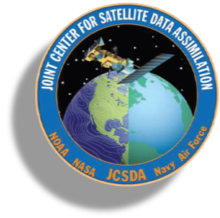In 2021, JCSDA and NOAA EMC began exploring Spack as an option for creating a single software stack that could be used for both the JEDI DA software environment and the Unified Forecast System (UFS) ecosystem. Since then both teams have combined their efforts to put together a new stack that works with not only JEDI and the UFS, but also with MPAS, NEPTUNE, the Unified Model and soon GEO.
Dr. Shih-Wei Wei, Dr. Sarah Lu and Dr. Maryam Abdi-Oskouei Represent JCSDA at 2023 Meteorology and Climate-Modeling for Air Quality Conference
Last week three members of the JCSDA staff—Dr. Shih-Wei Wei, Dr. Sarah Lu and Dr. Maryam Abdi-Oskouei—attended the 2023 Meteorology and Climate-Modeling for Air Quality Conference, or MAC-MAQ, at UC Davis in Davis, California.
JEDI Team Takes Another Step Toward Operational Functionality
Last week a combined JCSDA team from the core staff, NOAA, NASA, and the UK Met Office conducted a code sprint for Variational Bias Correction (VarBC) in JEDI’s Unified Forward Operator (UFO). The code sprint worked towards adding the ability to apply bias correction to observations by record, like those from aircraft and ships, in addition to channels.
NASA Data Assimilation Team Hits Major Milestone for JEDI Implementation
After more than a year of work on replicating current data assimilation outputs with JEDI, NASA’s Atmospheric Data Assimilation team at the Global Modeling and Assimilation Office (GMAO) has successfully completed a major milestone in the path toward JEDI implementation by passing the acceptance criteria for JEDI Unified Forward Operator (UFO), matching all JEDI/UFO input/output pairs to their existing model. This is a huge step forward for putting JEDI into operational use, laying the foundation for not just transitioning to JEDI but for adding capabilities that don’t exist in the current system.
The project team are the first JEDI developers in the NASA system, spearheading work that no one has done before and learning how to translate the old data assimilation system’s functions to JEDI. Along the way they contributed a great deal back to the JEDI repositories at JCSDA, finding bugs and inefficiencies as well as adding forward operator use-cases and improvements.
“We’re really proud of the team, and they’ve worked very hard,” says Dr. Ron Gelaro, lead scientist for atmospheric data assimilation at GMAO and NASA/GMAO representative on the JCSDA Executive Team. “This has really advanced our effort [with JEDI].”
The whole team went out for dinner last month to celebrate their milestone accomplishment, a well-earned treat after months of dedicated progress. With the observation inputs and outputs now matched, they are ready and excited to start exploring all the advancements JEDI can bring to their current modeling system.
“They did not only the configuration that NASA needed, but contributed a lot back to the Joint Center,” says Dr. Gelaro. “Thanks to them we’re very advanced in this area compared to most groups.We’re very proud of them for that.”
Congratulations to the NASA Atmospheric Data Assimilation Team!
Learn more about the project in this interview with Dr. Gelaro
Interview with Ron Gelaro, Lead Scientist for Atmospheric Data Assimilation at NASA’s Global Modeling and Assimilation Office and NASA/GMAO representative on the JCSDA Executive Team
At NASA’s Global Modeling and Assimilation Office (GMAO) weather prediction is as much an operational endeavor as a research one, with a NWP model run daily that produces forecasts for NASA customers and missions. The team that designs and runs that model is one of JCSDA’s integral partners, both providing input and putting JCSDA innovations like the JEDI unified data assimilation framework into operational practice.
Dr. Michael Morgan, Assistant Secretary of Commerce for Environmental Observations and Prediction, Cites Data Assimilation and JEDI as Key to Improving Operational Predictions in UIFCW Opening Remarks
JCSDA at the 2023 Unified Innovations in Forecasting Capabilities Workshop: Presentations, Panels, and Preparing for Operational JEDI
At the Unifying Innovations in Forecasting Capabilities Workshop (UIFCW) on July 24-28, 2023, JCSDA was in the spotlight from day one.











